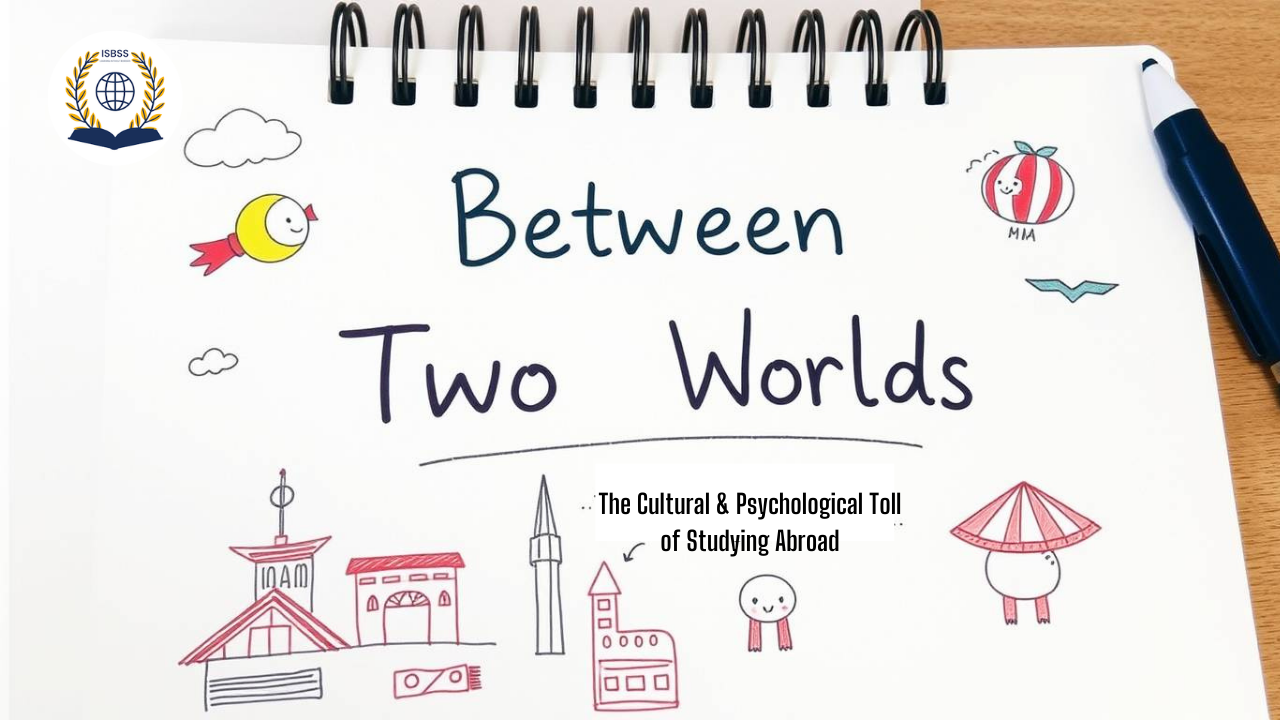
Between Two Worlds: The Cultural and Psychological Toll of Studying Abroad
Between Two Worlds: The Cultural and Psychological Toll of Studying Abroad
Studying abroad sounds exciting, right? New country. New culture. World-class education. But for many students from developing countries, it’s not all picture-perfect.
Sure, the opportunity is huge. But so are the challenges, many of which people rarely talk about.
We hear a lot about the financial pressure and the visa headaches. And yes, those are real. But what about the other struggles?
Like the emotional whiplash of leaving everything familiar behind… only to land in a place that feels completely foreign.
That kind of limbo takes a toll- mentally, emotionally, socially. Some students end up isolated, burnt out, or struggling in silence with their mental health.
Most universities don’t see it. Or worse, they see it and don’t know what to do.
We need to talk about this.
Western education systems need more than just diversity stats and international offices. They need real inclusion. Real support.
Because international students shouldn’t have to fight invisible battles just to fit in.
So- how do we fix this? How can institutions bridge that gap and truly support the students they claim to welcome?
Cultural Dissonance in Western Education
International students arriving in Western classrooms often experience a stark contrast in teaching styles, academic expectations, and student-teacher dynamics.
- Let’s be honest- if you grew up in a developing country, you probably sat through lectures where the professor did all the talking, right? No questions, no debates- just listen, memorize, repeat. But once you get the hang of it? It’s empowering.
- Classroom participation isn’t the same everywhere. Many international students stay quiet, not because they don’t have ideas, but because they’re afraid of saying the wrong thing. Maybe it’s the accent. Maybe it’s just not what they’re used to. And open discussions? For some, that’s totally new territory. But here’s the thing- your voice matters.
- Just trying to memorize everything the night before? Now, it’s more about writing essays, doing real research, and working on group projects. Sounds like a big shift, right? Especially if you’ve never done that kind of thing before stepping into college. But here’s the thing- it’s not just about passing a test. It’s about thinking deeper, working smarter, and actually learning something useful.
These differences often lead to academic insecurity, where students doubt their abilities despite being highly capable in their home systems.
Social Alienation & The Challenge of Belonging
Getting used to a new way of learning is tough. But the real challenge? It’s feeling like you actually belong. students arriving excited, only to feel completely out of place weeks later.
Why does this happen?
- Language barriers. If you’re fluent in English or French, it’s not always enough.
- Cultural misunderstandings. Western friendships can seem casual, even distant- especially if you’re used to close-knit, family-like bonds. It’s a big shift.
- Making local friends? Not so easy. Many international students end up sticking with others who are also far from home. It’s comforting, sure- but it can make you feel even more disconnected from the local culture.
And before you know it, that initial excitement fades into loneliness. You’re caught between two worlds- not fully part of your new one, and feeling a little distant from the old.
Sound familiar? You’re not alone.
The Mental Health Crisis Among International Students
Let’s be real—studying abroad sounds exciting, but behind the scenes? It can be incredibly isolating.
Many international students are silently battling anxiety, depression, and that awful feeling of not being “good enough.”
- A 2022 report found that 39% of international students showed clinical levels of anxiety and depression. That’s nearly double the rate of local students.
- Loneliness, the fear of letting people down, and the pressure to always “keep it together” can push anyone to the edge.
- Fear of failure- exacerbated by the financial sacrifices their families made- puts international students under immense pressure, often leading to burnout and mental exhaustion.
Cultural stigma. Or maybe they just don’t feel seen or understood by university counselors.
Mental health isn’t a weakness. It’s a real part of the journey- and more students need to know: it’s okay to ask for help.
Returning Home: The Reverse Culture Shock
You’d think going back home after years abroad would feel comforting, right? Familiar faces, familiar places. But for a lot of international students, it’s not that simple.
- You’ve grown into someone new—more independent, more outspoken. But now you’re navigating a culture where family expectations still weigh heavily and individual choices often take a backseat.
- It’s tough when your values shift, but everything back home stays the same. Friends might not relate to your experiences. Family might not understand your new mindset.
- It’s tough when your values shift, but everything back home stays the same. Friends might not relate to your experiences. Family might not understand your new mindset. And then there’s the job market. That degree you worked so hard for abroad? It doesn’t always open doors back home like you thought it would.
This “reverse culture shock” leaves many feeling displaced in both worlds– they are neither fully at home in their country of study nor in their homeland.
What Can Institutions Do? Some key steps include:
Culturally Inclusive Mental Health Services
- Imagine speaking to a counselor who gets what it’s like to be away from home, dealing with pressure, identity, and maybe even homesickness- all at once.
- Offer support groups where students can share experiences and coping strategies.
Support for Returning Students
- Provide career counseling tailored for students planning to return home.
- Create alumni networks to help with re-adaptation and professional opportunities.
Studying abroad can change your life- but let’s be real, it can also feel incredibly lonely.
Universities love to promote their “global” campuses, but once international students arrive, how many of them actually feel seen or supported beyond the classroom?
Cultural shock, homesickness, and the pressure to succeed all add up. And without the right support, it can take a serious toll.
It’s time for schools to step up. To create spaces where students feel like they belong, not just academically, but emotionally and culturally too.
Because attracting international students is one thing. Helping them succeed? That’s the part that truly matters.



